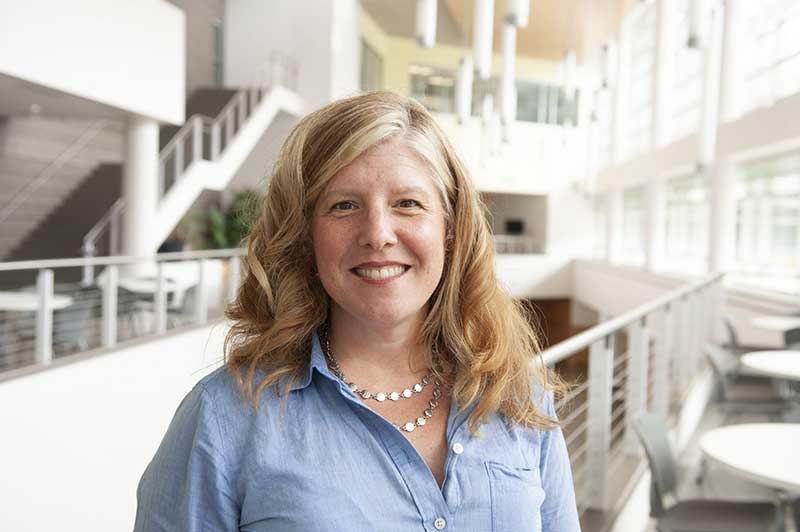
Liz Anderson was in the first DSW Cohort and graduated in 2014. She is currently an assistant professor of Social Work at Western Carolina University.
“As an assistant professor of social work, I primarily teach clinical courses in both our MSW and BSW programs,” Anderson explained. “In 2018 I was awarded the Sojourn Scholar Leadership Award for palliative care, which allowed me to spend 50 percent of my time doing research in rural palliative care. This year I was awarded a NIH R21 grant to culturally tailor an advance care planning intervention for American Indians with my colleague Dr. Turner Goins. I also have a PCORI sub-award to provide advance care planning training to 50 dialysis social workers all over the US through my work with George Washington University. I am an Executive Board Member (secretary) of the Social Work Hospice and Palliative Care Network and on the Executive Committee of the Coalition of Supportive Care of Kidney Patients.”
With a deep respect for rural and American Indian voices that often go unheard, Anderson realizes many populations lack palliative care, often because of structural and systemic barriers, stereotypes and biases about belief systems related to end of life, and lack of communication skills training. “UTCSW’s DSW program helped prepare me to do this work in several ways,” she said. “First, it refined and perfected my clinical skills so that I can provide a relevant educational experience for future social workers. Secondly, it has helped me advocate for social work an often underutilized and misunderstood resource in interdisciplinary healthcare teams. I have been able to articulate to stakeholders how social work services are distinctly different and unique from other healthcare providers. Allowing social workers to work at the top of their degree provides seriously ill patients and family members to get the unique care and treatment they want, which impacts quality of life and bereavement. Thirdly, the course work in epistemology, evidenced based research practice, translational research, clinical research, and applied statistics has helped me design research projects, and receive funding for work that that explores how to better elevate the voices of rural and American Indian persons so that they can get the end-of-life care that aligns with their personal values and preferences.”
Anderson’s favorite part of the DSW program was the summer residency program and meeting LCSWs from all over the country. “I learned so much from the people in my cohort and still have friendships with many of them,” she stated. “Each of us had a very distinct, defined, and different specialty, which created a rich learning environment beyond what was being taught.
Though perhaps not my ‘favorite’ memory, I distinctly remember having to do a 25-minute therapy role play in front of the entire cohort, all of whom were already outstanding therapists. It was terrifying and an outstanding learning experience.”
Note: Anderson was recently on PBS News, discussing rural palliative care and social work. Click here see her interview: https://www.pbs.org/newshour/brief/376204/dr-jennifer-blechman-liz-anderson-joanie-devine-and-david-keenan